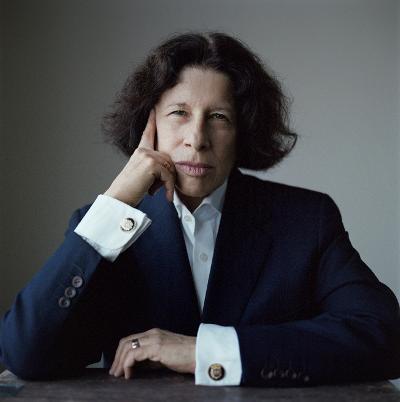
Fran Lebowitz – writer, speaker and dedicated New Yorker – found her calling when Andy Warhol hired her as an Interview magazine columnist. Her witty observations made her an acclaimed social commentator, and she published her first essay collection Metropolitan Life in 1978, followed by Social Studies in 1981. While she’s infamously suffered withwriter’s block, Lebowitz never stopped providing insightful commentary, travelling the world to speak to audiences about New York, current events, and personal annoyances. In 2021, she collaborated with Martin Scorsese on Pretend It’s A City – named for a comment she dishes out to slow-moving tourists – a Netflix series combining talks and interviews.Now, she’s back on tour.
An Evening With Fran Lebowitz comes to the UK and Ireland in April 2023. What can audiences expect?
I do the same thing everywhere in the world, what makes it different is the audience. Someone interviews me on the stage, then I answer questions from the audience. So whatever the audience wants to talk about, that’s what I talk about.
Are there any topics you’re hoping to be asked about?
It depends on the exact moment I’m there. For instance, when I arrived in the UK last time, the Supreme Court had just overturned Roe v. Wade and I went through several nights of being accused of having done this personally! Sometimes there are questions about New York. You never know what people are going to ask, and that is why I enjoy the audience questions the most.
You promise to broach topics including race, sexuality and gender. What do you want to say about gender, in particular?
Gender is a pretty fraught topic in the US politically, because it really riles up the right wing here. It seems to drive them insane. But it depends a lot on how old people are. Old people care more, even though it affects them less. For people who are older, gender was always immutable. For young people, it doesn’t anger them. It doesn’t destabilise them. A lot of things that are construed as being political are really generational. People almost never use that as an example of why people would agree on something or disagree on something, but you share so many things with people the same age, you have the same frame of reference.
Is it more interesting for you to have a cross-section of ages in your audience?
I’m very aware of that. Usually, people who have kids are more aware, but people who have kids make a huge mistake – I mean, aside from having kids, which I think is a huge mistake. But the huge mistake is using their own children as a marker for a whole generation. If your kid is 16, that kid does not represent all 16-year-olds. I spent a lot of time thinking about it and from a young age, I had friends much older than me, and now I know a lot of young people. So I have an unusually privileged overview.
You’ve said you spend a lot of time just thinking. How did you find the isolation and restrictions of the pandemic – was it good to have more thinking time? Where did you find inspiration?
Truthfully, when COVID first hit, the main thing I thought was: I don’t know how to think about this at all. I turned 70 during the pandemic, and by the time you’re that age, let me assure you, almost everything that happens reminds you of something else that has happened. But it was the first thing where I couldn’t say: ‘It’s kind of like this.’ Partly that was caused by it never happening in my lifetime, but also, I never read or watch science fiction. I never thought: what if there was a plague? But people who read or write science fiction think about this all the time, apparently. So at the very beginning, I spent a lot of time thinking: how do I think about this?
You’ve been doing onstage Q&As since 1978, and once said that you invented the format. How did that come about?
I used to give readings from my books. In San Francisco, I was doing these readings all the time and said to the woman who ran the series: ‘I’m sick of reading this book, why doesn’t someone interview me on stage?’ She said: ‘Like a television talk show?’ I said: ‘Kind of, but with a journalist, as opposed to a talk show host, because there’s a big difference between the two.’ I took questions from the audience – any audience would like that, so it worked out. Now, everyone does this, but I believe I was the first.
After four decades, how do you keep the format feeling fresh?
I don’t ever allow the interviewer to discuss the questions with me beforehand. I want to be surprised by the questions. Lots of people who do this ask for audience questions to be written down on index cards so they can choose which they want to answer. But I want the opposite. So I don’t prepare at all. My preparation really consists of drinking coffee.
Credit: Fran Lebowitz is touring the UK and Ireland this April, visiting the Royal Concert Hall Nottingham on Tuesday 21 April. Tickets are available from www.trch.co.uk Box Office 0115 989 5555.




Comments Closed